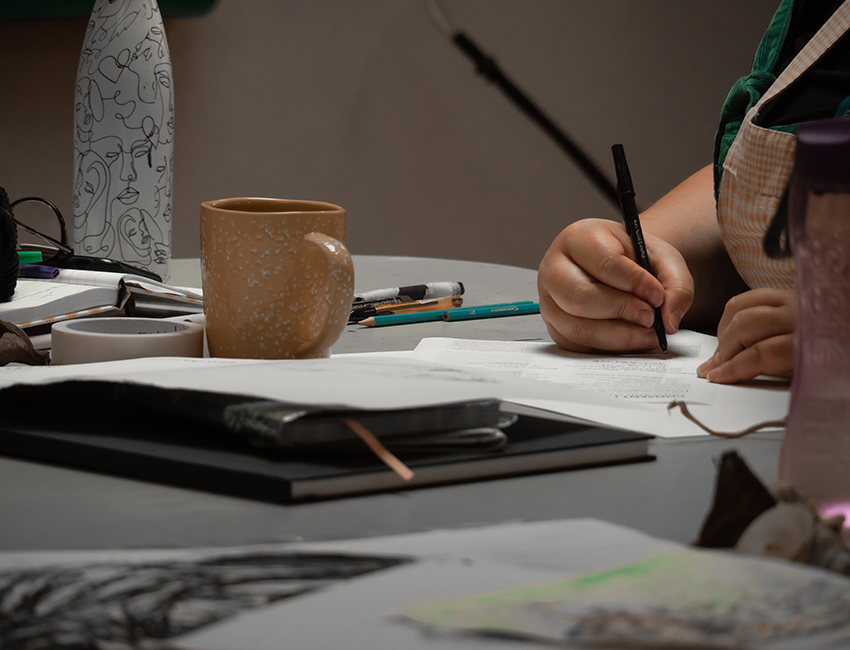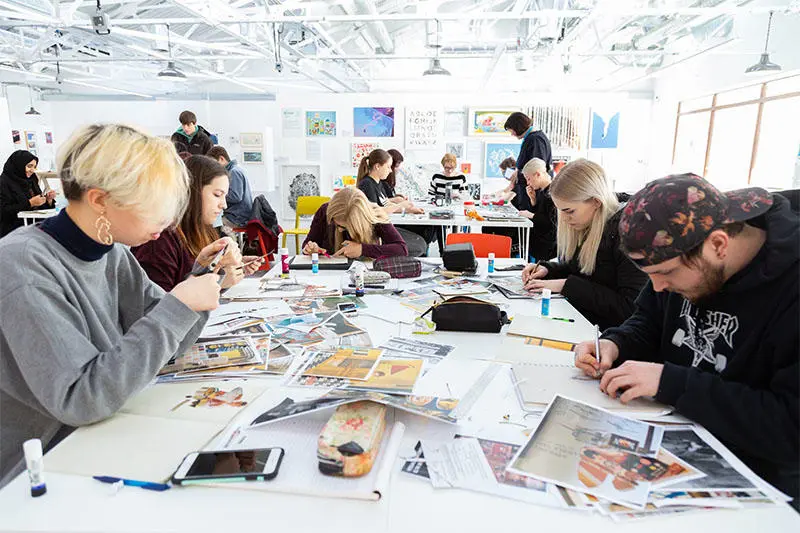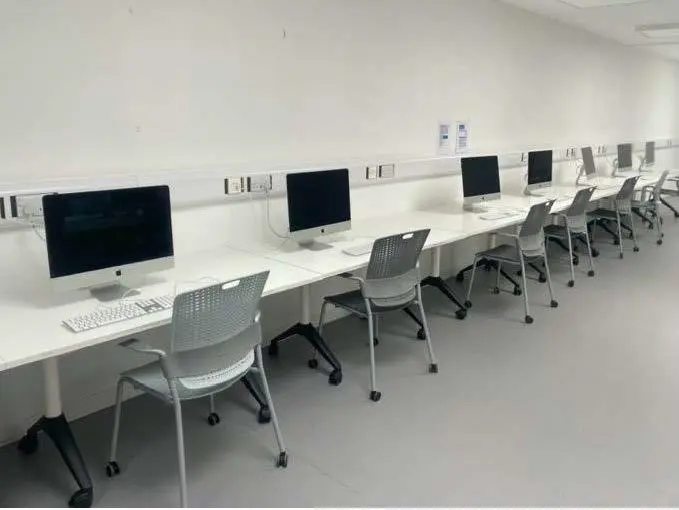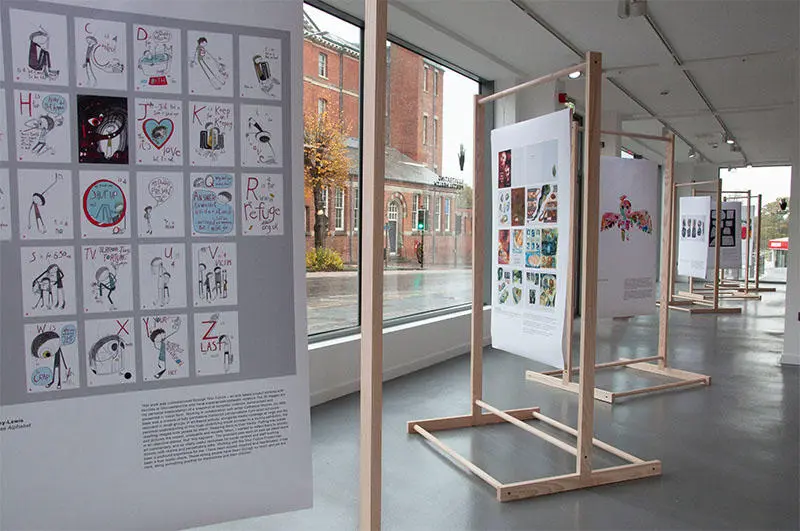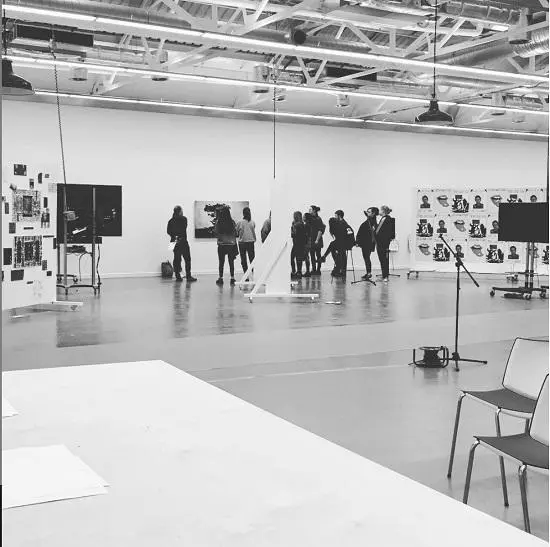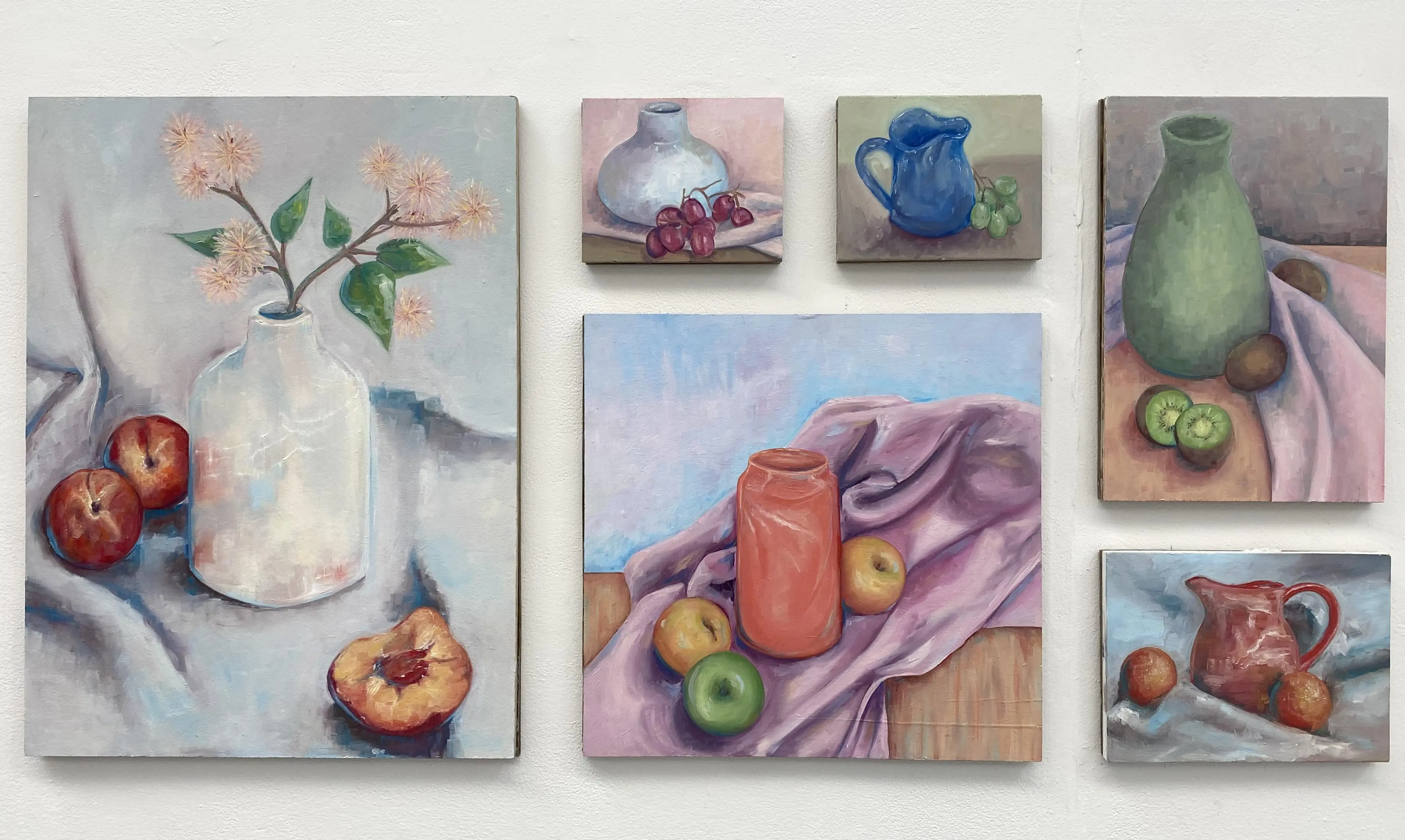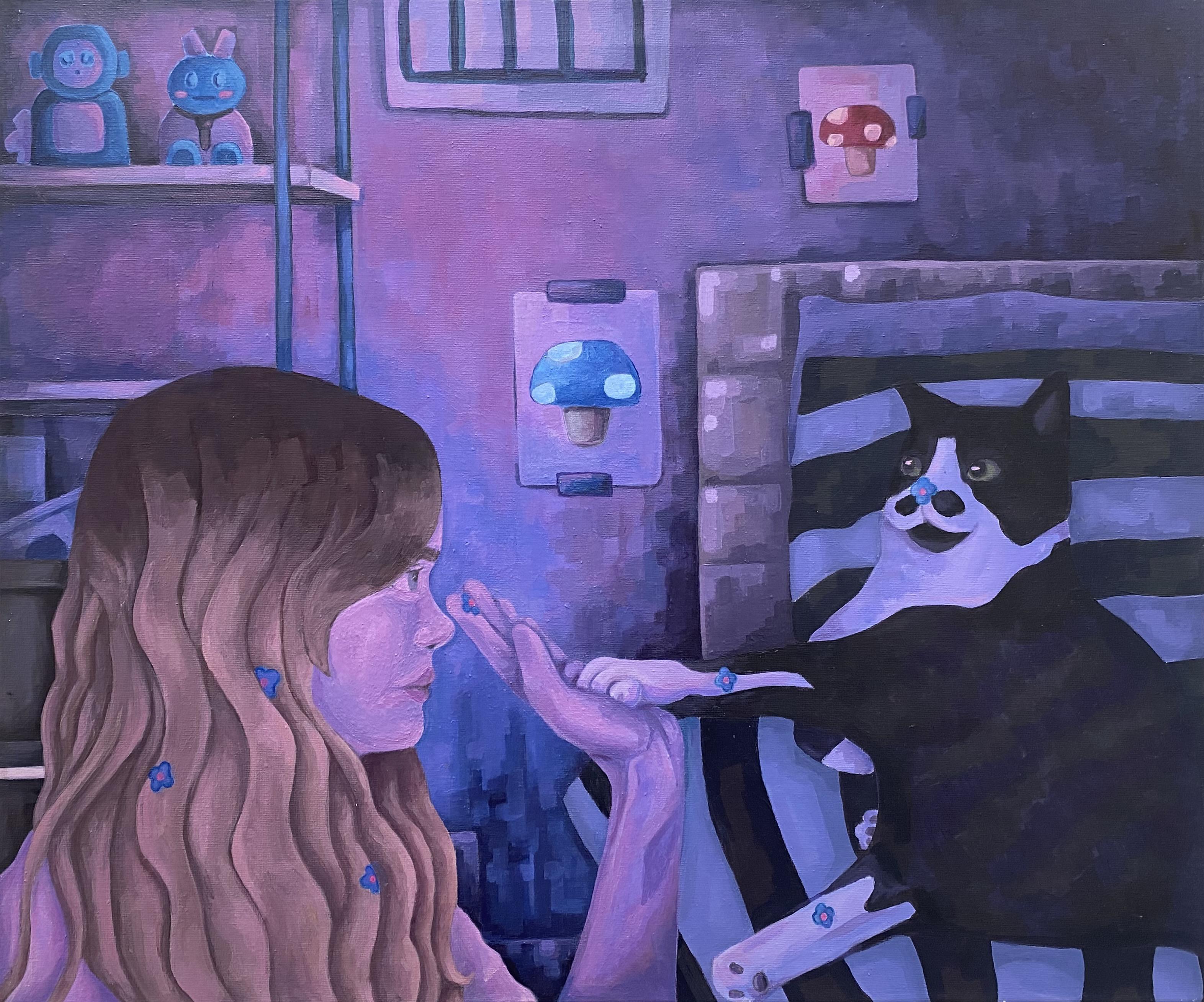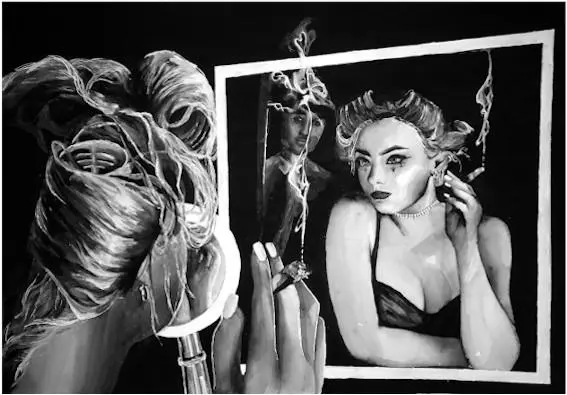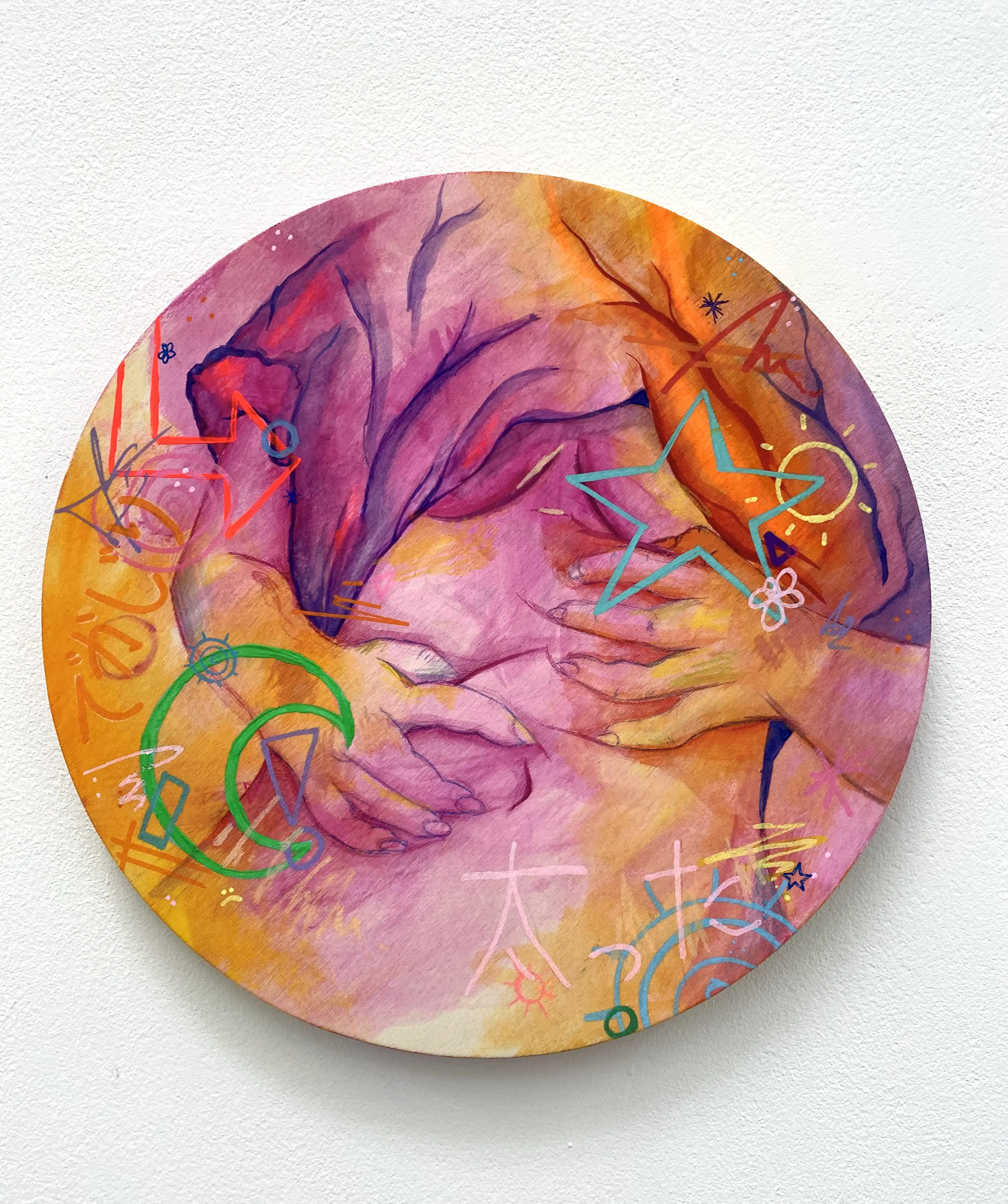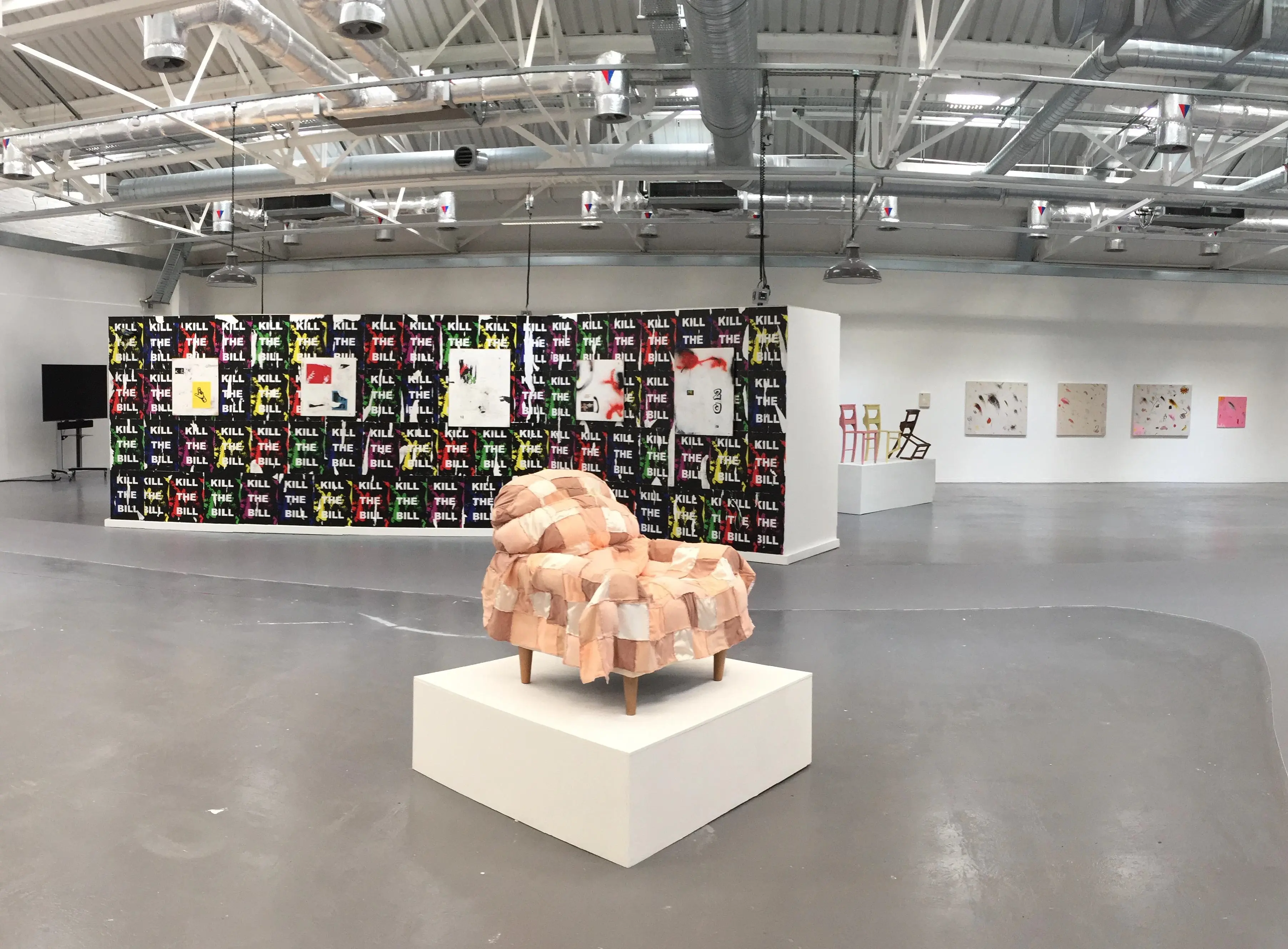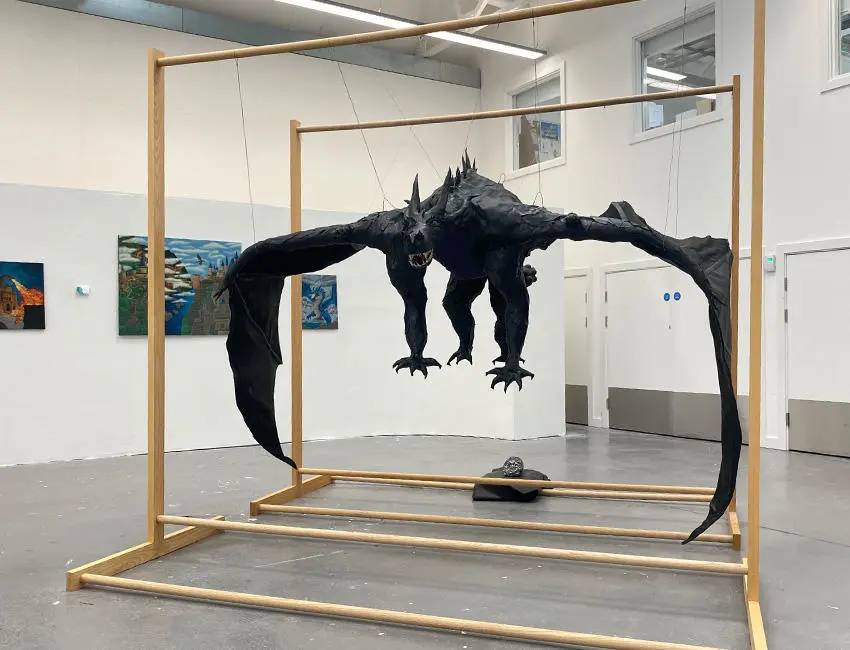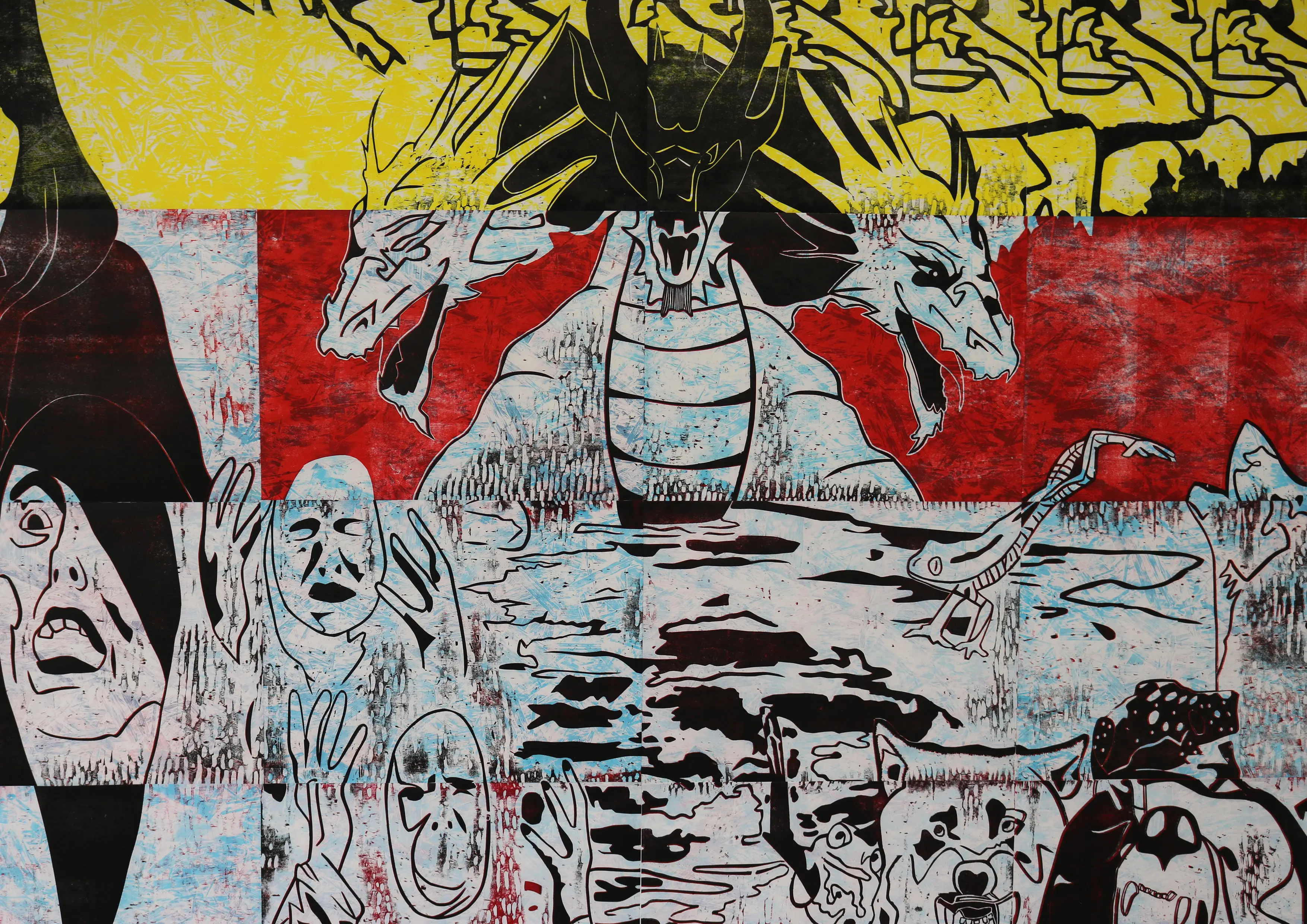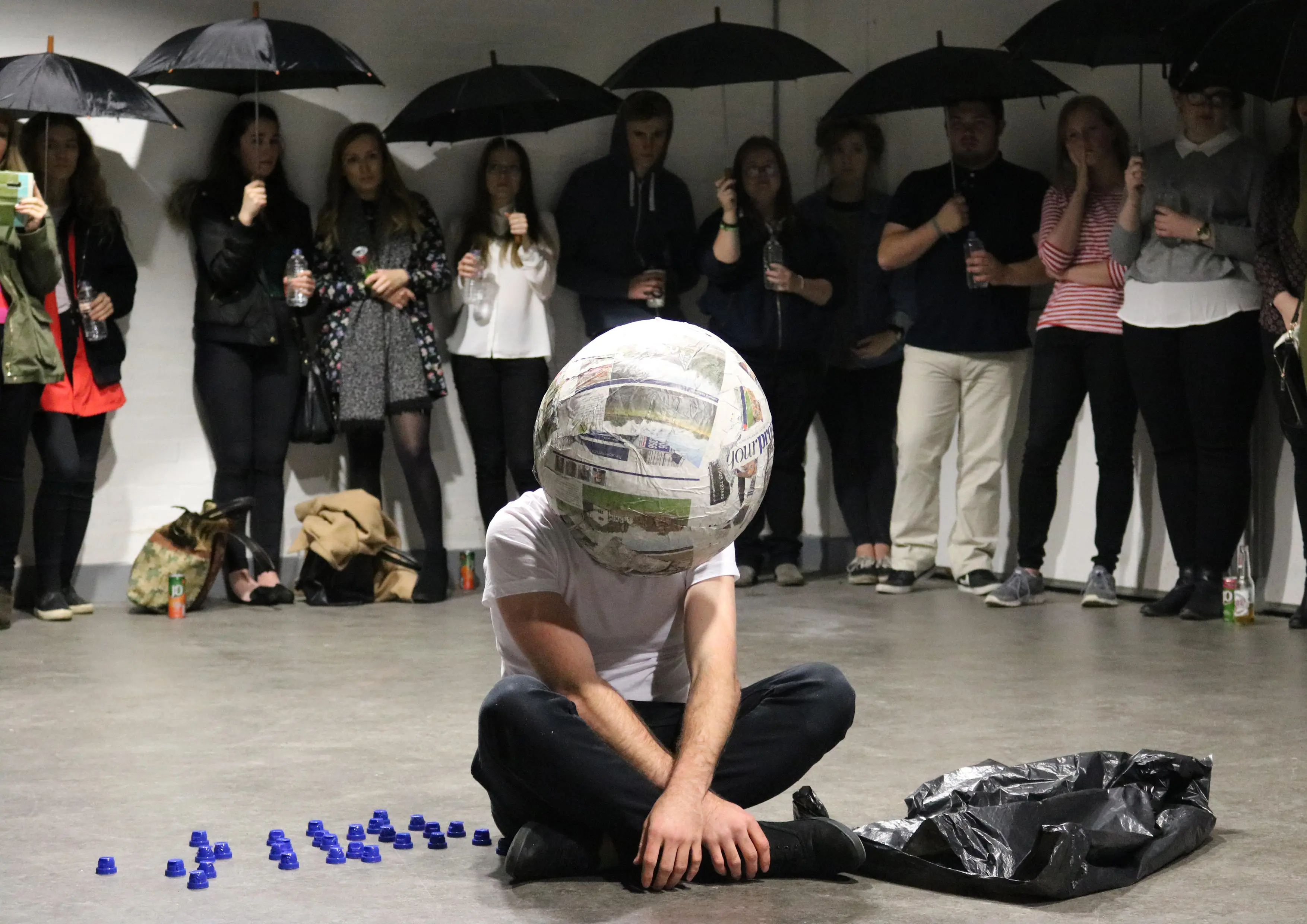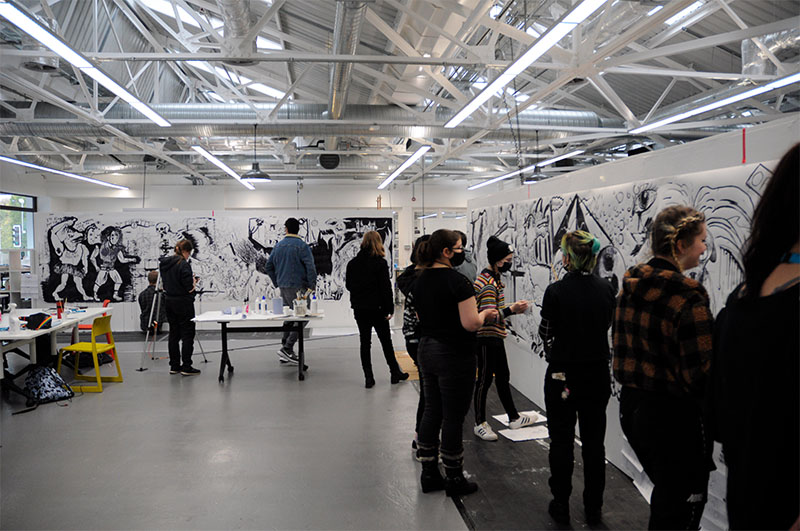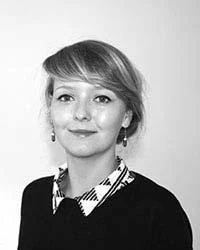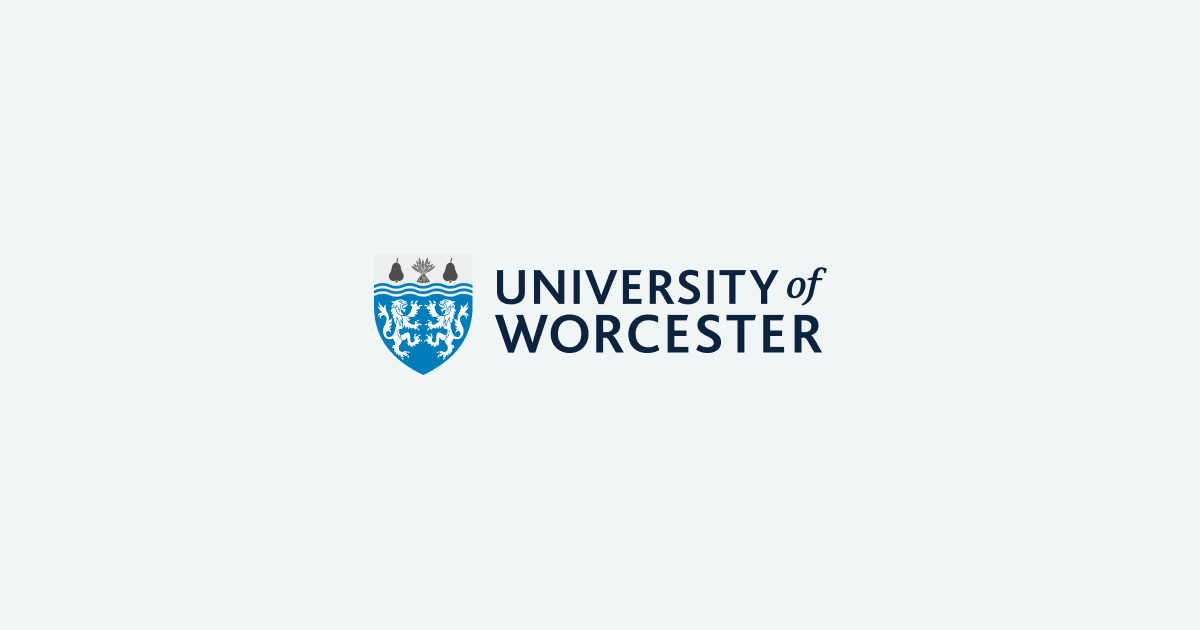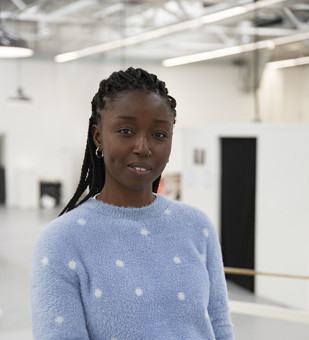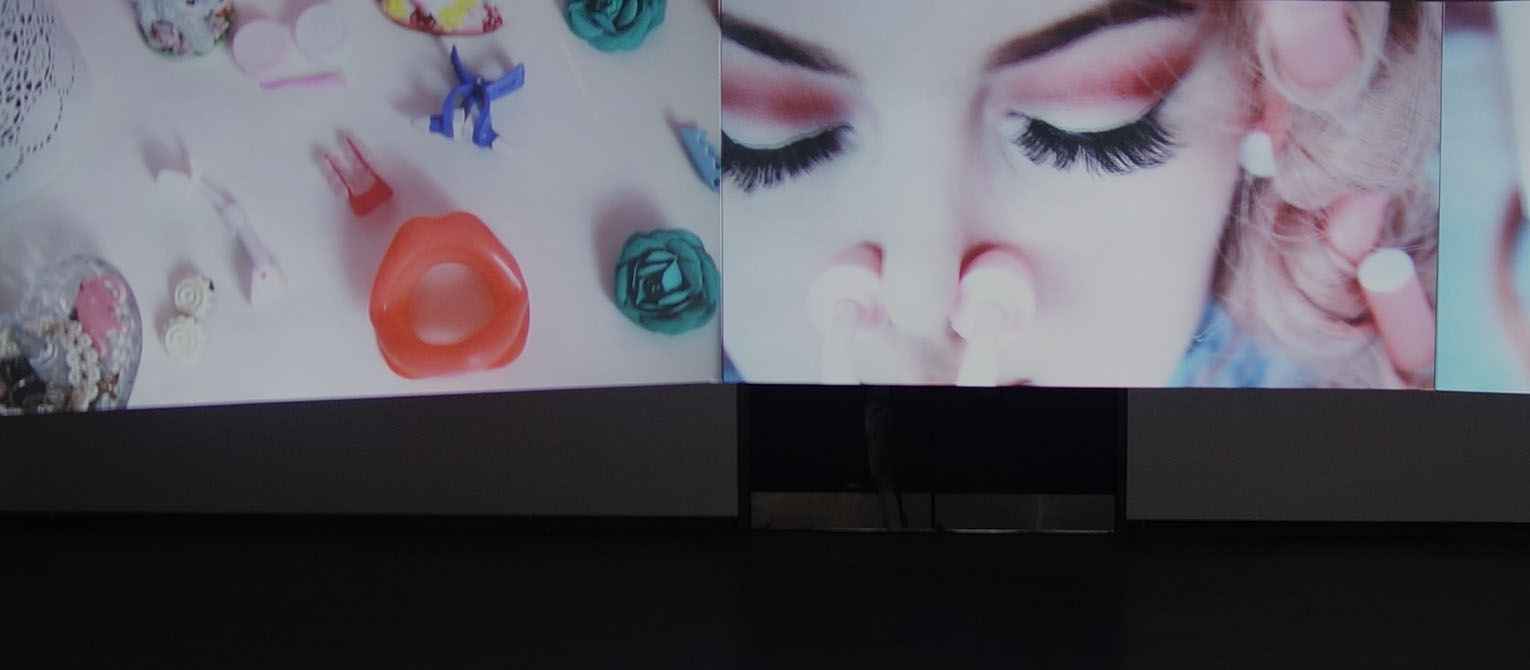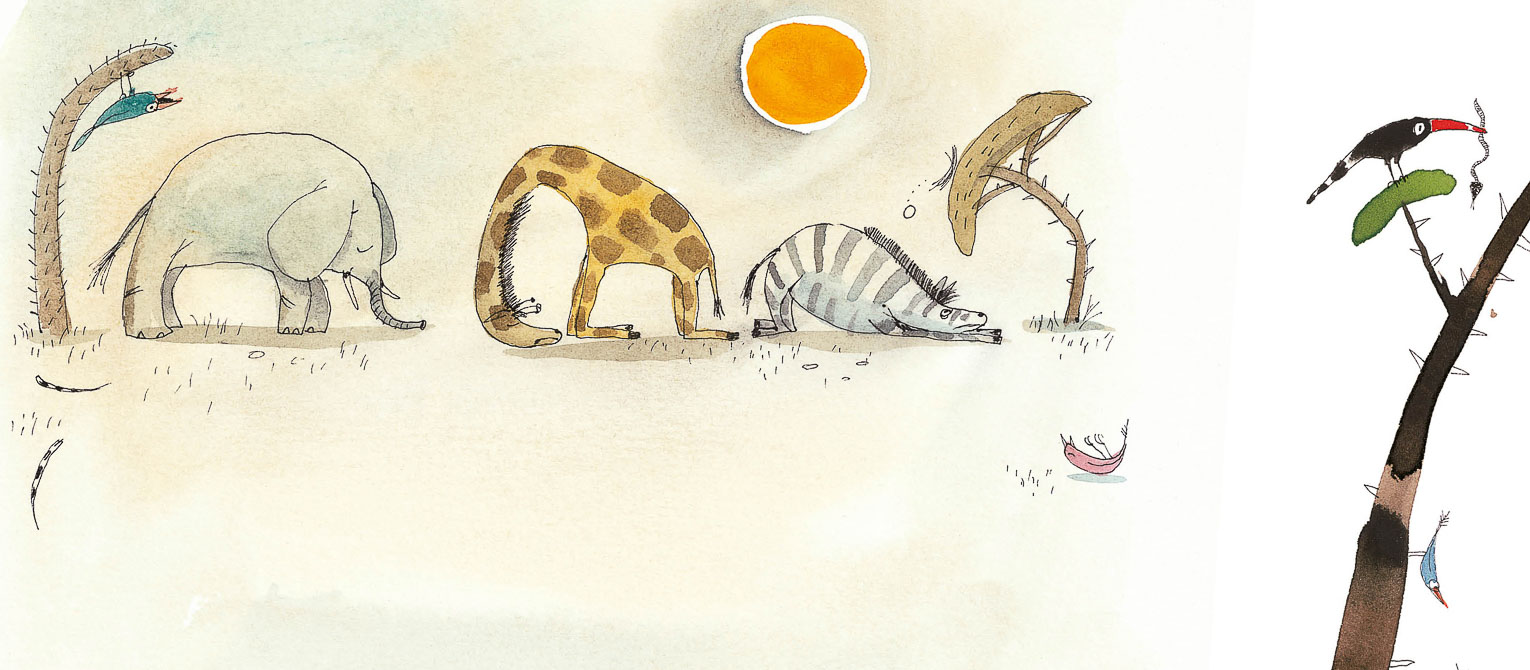With your own studio space, access to specialist facilities, and insights from guest artists and therapists, this course equips you with the skills to pursue careers in art therapy, creative healthcare and a variety of roles in the arts and education sectors.
in the UK for art and design graduate prospects
students feel positive about the opportunities to explore ideas and concepts in depth
University of the Year finalist
Recognised for our graduate success, we’re shortlisted for University of the Year in the Times Higher Education Awards 2025.
Overview
Our Fine Art with Psychology degree offers a blend of creative exploration and psychological insight. It is one of only two undergraduate courses in the UK combining these fields.
Based at the Art House, you’ll have access to your own personal studio space, specialist facilities and a supportive, collaborative environment where you work alongside other arts students. You’ll explore a wide range of media, including painting, sculpture, photography, and digital media. Through workshops, studio critiques, and one-to-one tutorials, you’ll refine your artistic voice and gain confidence in your work.
You’ll also benefit from engaging guest lectures by contemporary artists and have the opportunity to gain hands-on experience in local schools and galleries.
By combining artistic creativity with psychological theory, this course gives you a unique perspective on how the arts can promote well-being and personal development. When you graduate, you’ll be well-equipped to pursue careers in art therapy, creative healthcare, teaching, or a range of other roles in the arts.
Course content
Each year you will study a mix of arts and psychology modules. In the second and third years you’ll choose from a range of optional modules in both disciplines, so you can steer the degree towards your own interests and ambitions.
We regularly review our courses to reflect the latest research and developments in the subject area, as well as feedback from students, employers and the wider sector. As a result, modules may change to ensure the course remains current and relevant.
Optional modules will run if enough students choose to study them. It is not guaranteed that all modules will be offered every year.
Careers
Our course is designed to equip you with the practical and creative skills needed for a successful career in the arts, education or health and well-being sectors. You'll be able to showcase your versatility as an artist through a diverse portfolio while also developing your communication, project management, and problem-solving abilities – vital skills in any workplace.
Our Fine Arts degree could be the first step towards your career as a:
- Art therapist
- Community arts worker
- Creative health worker
- Counsellor
- Teacher
- Educational consultant
- Graphic designer
- Illustrator
- Printmaker
- Advertising art director
- Gallery curator
- Marketing officer
- Arts educator
Opportunities to progress
Options to progress onto postgraduate study at Worcester include our Creative Media MA, Occupational/Business Psychology MSc and Counselling MSc. If you’re looking to pursue teaching as a career you may be interested in our PGCE Primary or PGCE Secondary (Art and Design) courses.
Course highlights
Teaching and assessment
Fine Art with Psychology draws upon two distinct yet complementary disciplines and the teaching reflects this. Across the course you will experience a variety of methods including Studio Practice, interactive practical workshops, lectures, seminars, fieldwork and practical activities.
Assessment comes in many forms and includes producing artwork portfolios and exhibitions, alongside writing reflective essays, critical commentaries and research assignments.
Teaching and assessment contents
Fine Art with Psychology draws upon two distinct yet complementary disciplines and the teaching reflects this. Across the course you will experience a variety of methods including Studio Practice, interactive practical workshops, lectures, seminars, fieldwork and practical activities.
All these forms enable the application of learning through a combination of practice, discussion, problem-based learning and smaller group activities. Single sessions may involve lectures, workshops, seminars and practical sessions; site based work and formative exercises and there is an expectation of sustained studio practice in art.
Theory is taught through practice to enable you to gain a real understanding on how to apply research in a practical and professional context.
Psychology is normally lecture-seminar based but practical, problem-based learning is also a key component of the delivery, as well as blended and online delivery of course content.
Seminars enable the discussion and understanding of topics covered in lectures and practical session are focussed on developing specific skills and applied individual and group work, and make extensive use of formative feedback to shape your learning and confidence throughout modules.
You will be allocated a Personal Academic Tutor who will be accessible to you throughout your time here via a number of scheduled sessions in each year plus private meetings for help and advice as you need it.
Meet the team
A small selection of the Arts lecturers who teach on this course.
Entry requirements
UCAS tariff points required: 112
| Qualification | Grade |
|---|---|
| A-level | BBC |
| BTEC National Extended Diploma | DMM |
| T-level | Merit |
We do accept Access to HE Diplomas and other qualifications which may not exactly match the combinations above. Work out your estimated points with the UCAS tariff calculator.
Any questions?
If you have any questions about entry requirements, please call our Admissions Office on 01905 855111 or email admissions@worc.ac.uk.
Fees
Fees contents
UK and EU students
In 2026/27 the standard fee for full-time home and EU undergraduate students on BA/BSc/LLB degrees and FdA/FdSc degrees is £9,790 per year.
Tuition fees are reviewed annually and may increase each year for both new and continuing students.
For more details on course fees, please visit our course fees page.
International students
In 2026/27 the standard tuition fee for full-time international students enrolling on BA/BSc/LLB degrees and FdA/FdSc degrees is £17,200 per year.
Tuition fees are reviewed annually and may increase each year for both new and continuing students.
For more details on course fees, please visit our course fees page.
In focus
How to apply
How to apply contents
Applying through UCAS
UCAS is the central organisation through which applications are processed for full-time undergraduate courses in the UK.
Read our how to apply pages for more information on the application process, or if you’d like to apply for part-time study.
Fine Art with Psychology BA (Hons) - CW89
Contact
If you have any questions, please get in touch. We're here to help you every step of the way.
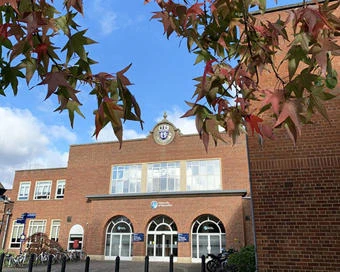
Admissions Office
admissions@worc.ac.ukAdmissions Office
admissions@worc.ac.uk01905 855111More to explore
Open Days
Visiting us is the best way to get a feel for student life at the University of Worcester.

The City of Worcester
Worcester is a welcoming university city with great transport links and plenty of student parking.

Accommodation
Benefit from our accommodation guarantee. We have rooms on campus to suit every budget including en-suite options.

